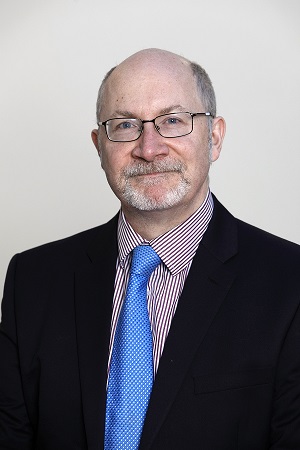Imagine you have a local supermarket. You have been going there for years, your shopping list is getting longer every month, and frankly the bill is getting pretty high. So, you bring your overflowing trolley up to the checkout, and when you get the bill you explain that you really want to spend your money on something else. Maybe you could give them 75% of the money? Obviously you hope they’ll agree – it would be very disappointing to have to tell everyone that the supermarket boss was too greedy to care about his customers…
I think we can all guess that you would end up walking out with your trolley a little less overflowing – but the same doesn’t seem to be true with the NHS and general practice.
Both locally and nationally GPs are being told that there is no money available for general practice, that there are no new resources coming, that there is no cavalry coming over the hill to rescue us. Of course, SGPC will continue to argue this point – ultimately even when money is scarce both national and devolved governments can choose their priorities – but what does the ongoing restriction on funding for general practice mean for GPs, their staff, and their patients?
Many of you will have heard my views on this at conference and LMC meetings. You have been telling us about the significant stress involved trying to continue to provide high quality services to your patients as the workforce we were promised five years ago has failed to materialise. We all know GPs both young and old who have chosen to walk away or retire.
But what about those of us who love what general practice CAN be, who have invested time, money and effort into our staff and patients, and who don’t want to just buy a ticket to Australia?
At some point GPs will just have to accept that we cannot continue to personally bridge the gap between the resources we need to provide a first class health service, and the resources that the government is prepared to give the NHS. The budget we are offered means that we cannot always meet the reasonable demands of our practice population (let alone the less reasonable), and it helps nobody for doctors to burn out trying to do so.
My practice – like many others – has been unable to recruit over the past year, and it hasn’t been easy. However, in October we accepted the inevitable, looked at the BMA Workload guidance (you can find it here) and decided on the best approach for our practice.
We counted the sessions we could deliver, counted the appointments we could offer and then made up the appointment book. Now, instead of dedicating a session and half every day to triage we maximise our bookable appointments. Once they’re full, they’re full (except palliative and under 5).
We were surprised how much difference this made for the partners and staff – previously even if you weren’t the duty doctor you were watching that column trying to help out, and dreading the day when that column was all on you.
We were even more surprised how well our patients took it. Having to argue your case that your problem was truly medically urgent first to the receptionist and then again to the GP tended to cause disagreements. Our complaint numbers were multiples of what they had been pre-pandemic, and we lost multiple staff who just couldn’t face another day of answering phones with frustrated patients at the other end.
Instead, having been told that we had reached our safe limit, patients seemed to be more understanding. Most of them realised that just like the rest of the NHS we were doing our best with what we had. Even better, by controlling the work that we could control – booked appointments – we suddenly had time to deal with those frequently occurring but unpredictable problems that where we can really make a difference – the complex palliative care patient, the mental health emergency, the family conference with a frail relative who needs good decisions made quickly.
Putting reasonable limits on our workload has certainly helped us and our staff, but we still see the gap between what our patients would like and what we can offer. Sadly, we can’t fix that – perhaps all we can do as GPs is to keep NHS general practice ticking over so there is something to rebuild from when the country decides that primary care is worth supporting.
Every GP that Scotland recruits or retains offers thousands of extra appointments for patients – if we were to get the 800 extra GPs we were promised by 2027 we could offer over three million more appointments every year.
But perhaps until these GPs materialise it is enough to look after as many of your patients as you can safely see each day, look after yourselves and your staff; and wait for politicians to remember how efficient we are, how much continuity helps the health of the whole population, and what we used to be able to offer when Scottish general practice was funded properly.
Dr Andrew Cowie is Deputy Chair of BMA Scotland’s GP Committee


is it not time Gp s in Scotland went back to the ballot box ? Time to hand back our contracts and all join a general practioner chambers . ?
LikeLike